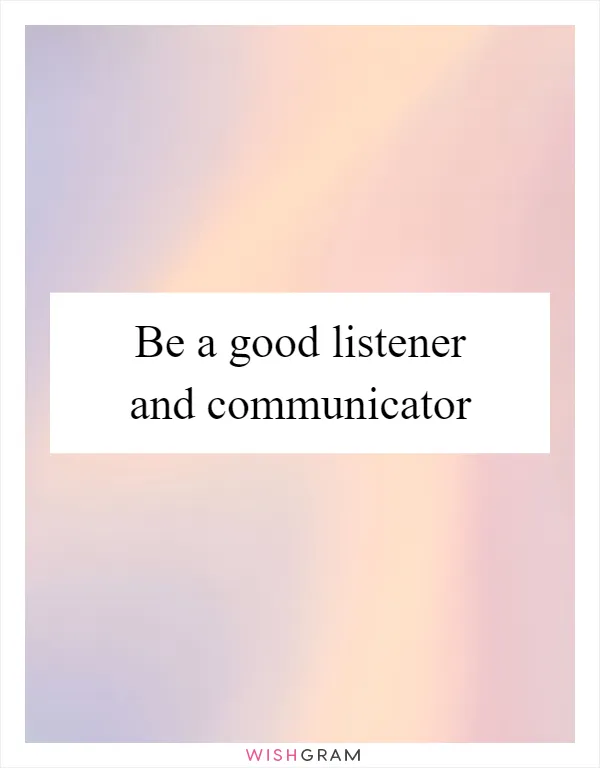Be a good listener and communicator
Being a good listener and communicator is an essential skill for self-improvement. It not only helps in building strong relationships but also plays a crucial role in personal growth and development. In today's fast-paced world, where distractions are abundant, being able to truly listen and effectively communicate can set you apart and contribute to your overall success.
Listening is more than just hearing words; it involves actively paying attention to the speaker and understanding their perspective. By being a good listener, you demonstrate respect and empathy towards others. It allows you to gain valuable insights, broaden your knowledge, and foster meaningful connections. When you listen attentively, you create a safe space for others to express themselves, which can lead to deeper conversations and stronger bonds.
Improving your listening skills starts with being present in the moment. Minimize distractions, such as putting away your phone or turning off the TV, and focus solely on the person speaking. Maintain eye contact and use non-verbal cues, like nodding or smiling, to show that you are engaged. Avoid interrupting or jumping to conclusions, as it can hinder effective communication and understanding.
Communication is a two-way street, and being an effective communicator is equally important. It involves expressing your thoughts, ideas, and emotions clearly and respectfully. Good communication skills enable you to articulate your needs, resolve conflicts, and build positive relationships. It also helps in avoiding misunderstandings and ensures that your message is conveyed accurately.
To become a better communicator, start by improving your verbal and non-verbal communication skills. Practice speaking clearly and concisely, using appropriate tone and body language. Be mindful of your facial expressions and gestures, as they can convey emotions and intentions. Additionally, pay attention to your listening skills, as effective communication requires active participation from both parties.
Another crucial aspect of communication is being open-minded and receptive to different perspectives. Be willing to listen to others' opinions, even if they differ from your own. Engage in constructive conversations, where you actively seek to understand rather than simply waiting for your turn to speak. This not only fosters mutual respect but also encourages growth and learning.
Furthermore, being a good listener and communicator involves being aware of your own emotions and managing them effectively. Emotional intelligence plays a vital role in understanding others and responding appropriately. Practice self-reflection and self-awareness to identify your triggers and biases, allowing you to communicate more empathetically and authentically.
